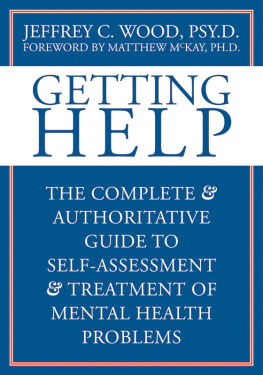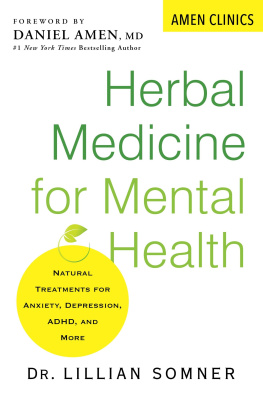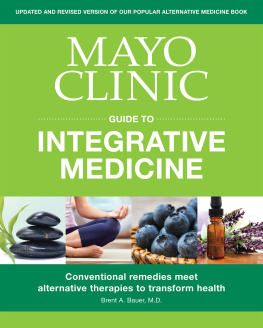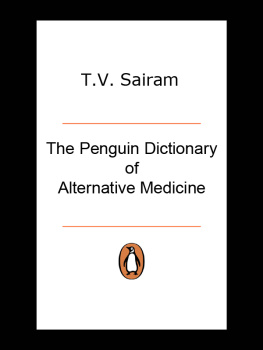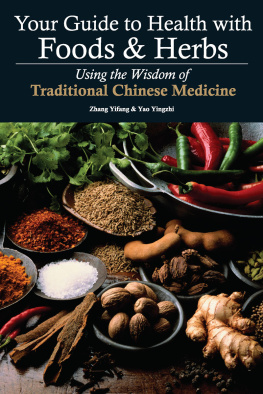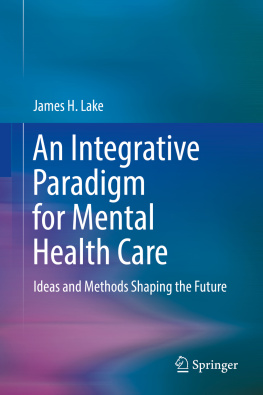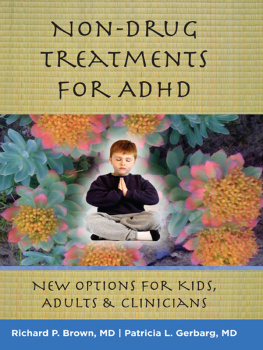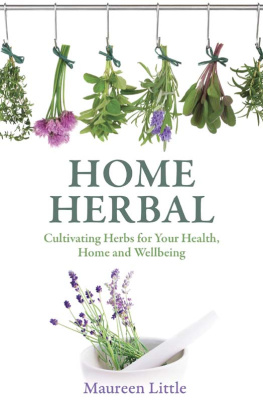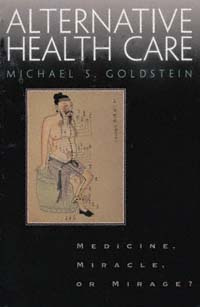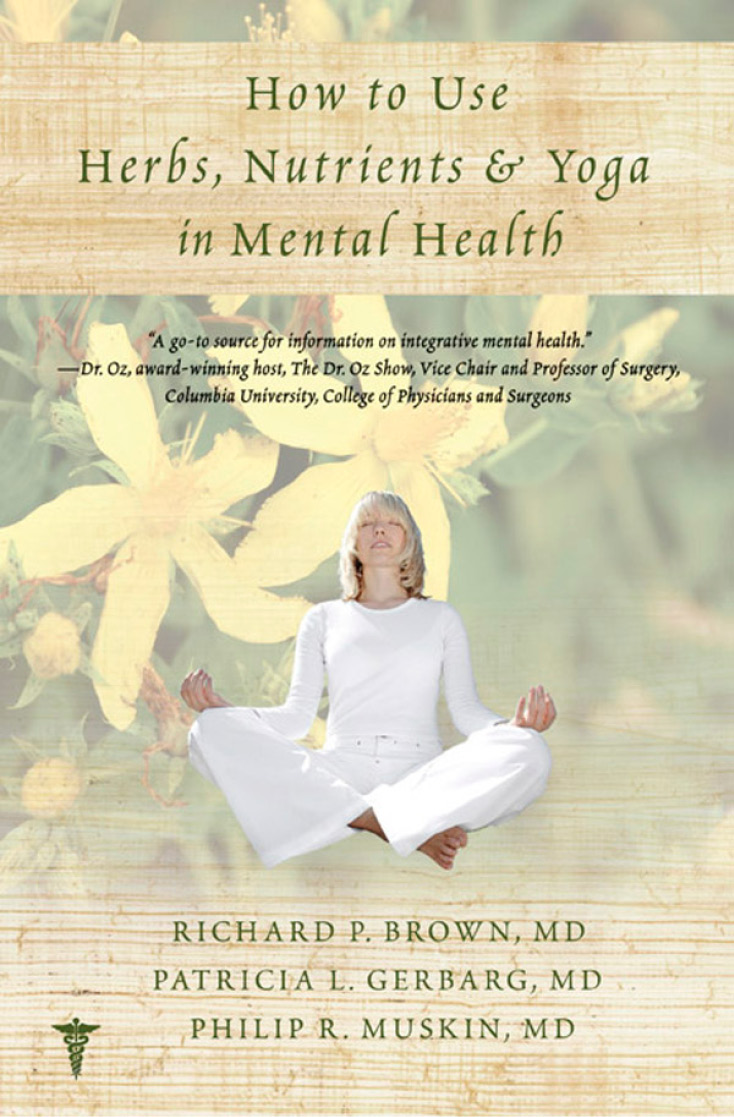
How to Use
HERBS, NUTRIENTS & YOGA
in Mental Health

Richard P. Brown, md
Patricia L. Gerbarg, md
Philip R. Muskin, md

W. W. Norton & Company
New York London
For their love,
patience, and support,
we dedicate this book
to our families.
Contents

Expanded Contents

Acknowledgments

W e wish to thank the friends and colleagues who read and critiqued our manuscript. Our deepest appreciation goes to Dr. Sharon Sageman for her extraordinarily insightful comments on every chapter. She shared her clinical expertise, contributed several cases from her practice, and authored several of the important studies cited in the sections on post-traumatic stress disorder and bipolar disorder. We could not have found a more supportive, conscientious reader. She dedicated her time and attention to this book as though it were her own. We cannot thank her enough. She is our pearl of wisdom.
We would also like to thank Dr. Charles Silberstein, who provided many practical suggestions to improve the clarity and accessibility of the material in this book. For those readers who notice that some of the scientific material is intelligible, you have Charlie to thank. He brought to our attention the kinds of questions that would be of interest to practitioners and let us know which sections needed more explanation and which approaches were most effective.
We also must thank Naomi Gerbarg, BSW, MA, who shared her perspective as a nonmedical reader seeking health care information. Her skills as a reader and as a writer helped our book relate better to its audience. On behalf of our book, we thank Naomi for her time and her sensitivity to the needs of readers.
Many colleagues, teachers, and mentors contributed generously by sharing their expertise and the fruits of their research with us. Dr. Zakir Ramazanov taught us about Rhodiola rosea and gave us his extensive translations of Russian research on adaptogens. Dr. Teodoro Bottiglieri guided us through the metabolic mysteries of S-adenosylmethionine, homocysteine, and methylfolate. Dr. Stephen Porges and Dr. Teodoro Beauchaine have enhanced our understanding of the role of the autonomic nervous system in mental health.
We also want to express our deep appreciation to Dr. Beth Adelson, Dr. Lorenzo Bernardi, Mark Blumenthal, Laura Braslow, Joshua Braslow, Dr. Gerard Byrne, Dr. Janis Carter, Dr. Bud Craig, Dr. R. Damodoran, Teresa Descilo, MSW, CTS, Dr. Patricia Eagon, Dr. Julia Eilenberg, Stephen Elliot, Dr. Jim Farrow, Dr. B. N. G. Gangadhar, Dr. Liselotte Gootjes, Dr. A-Min Huang, Dr. Martin Katzman, Dr. Vinod Kochupillai, Dr. James Lake, Dr. Stephen Larsen, Robin Larsen, Dr. Elena Lilioukina, Shad Meshad, MSW, Dr. Elizabeth Schauer, Dr. Leslie Sherlin, Dr. Shirley Telles, Dr. Irena Strigo, Dr. A. Vedamurthachar, Dr. Arielle Warner, and Aimee Weintraub. Our knowledge and experience of mindbody practices derive from the wisdom and training of Sri Sri Ravi Shankar, creator of Sudarshan Kriya Yoga, Aikido Master Sensei Imaizumi, Qigong Master Robert Peng, Zen from Sensei Tadashi Nakamura, Tai Chi from Master Tsu Kuo Shih, and Dr. Lester Fehmi, originator of the Open Focus technique.
The editors and staff of Norton Professional Books deserve our thanks for their understanding and enthusiastic support in bringing this book to publication. They gave priority to the needs of clinicians for practical training in complementary and alternative medicine.
Most of all, we wish to thank our patients who had the courage to keep trying new and alternative approaches to overcome their difficulties, and who trusted us to guide them toward recovery. Their unwillingness to give up when standard treatments failed gave us the opportunity to develop the approaches presented in the chapters ahead. In addition, several of the treatments were brought to us by patients who had come across them in their own searches, proving that one can learn a great deal from listening to patients. Our knowledge base could only have been built with their collaboration.
Preface

C omplementary treatments are being used by the majority of consumers, with or without the advice of their health care practitioners. Although many physicians and therapists believe that herbs and mindbody practices enhance health, they hesitate to integrate such approaches into their clinical work. This is understandable considering that few had access to courses in complementary and alternative medicine (CAM) during their training. Once in practice, it is difficult to find time to master the use of hundreds of herbs or to connect with an experienced clinician for supervision, an essential part of mental health training. By focusing on evidence-based treatments that have significant benefits and minimal side effects, clinicians can develop enough expertise to give their clients the best that CAM has to offer while protecting them from unnecessary risks.
Some consumers pursue CAM because they want to enhance health, prevent illness, slow aging processes, or feel more in control of their health care choices. Others are dissatisfied with the effects of prescription medications, cannot tolerate the side effects from drugs, or fear long-term adverse effects. Unfortunately, without the guidance of knowledgeable health care providers, many become casualties of the misinformation superhighway or practitioners who profit financially from the sale of products they recommend.
In this book we concentrate on CAM treatments that we find most helpful in clinical practice, relatively easy to administer, and low in side effects. With this knowledge, health care professionals will be able to respond to the concerns of their clients and develop integrated treatment plans leading to health enhancement, disease prevention, and optimal symptom resolution with minimal side effects.
A tiered decision-making approach to common problems encountered in the office will show which treatments to consider first and how to add complementary layers for more and more improvements. For each condition, we present our best picks from the herb garden and the most effective, least time-consuming mindbody techniques. Chapters will begin with the most useful CAM treatments followed by those with more circumscribed benefits.
This book may be used by clinicians interested in broadening their knowledge of CAM and in learning practical methods to safely introduce new treatments into their work. As a study guide, this book provides material and case examples for teaching courses on CAM for students in any mental health or medical field. Major areas of mental health are covered, including mood disorders, anxiety disorders, disorders of cognition and memory, hormone-related problems and life stage issues, psychological aspects of medical illnesses, schizophrenia, and substance abuse.
Consumers and clinicians will find here a resource of practical information for many of the health issues they and their families are facing. For example, the chapter on attention-deficit disorders and learning disabilities will prove helpful for families looking for alternatives to medication for their children. Women will find new approaches to premenstrual syndrome, infertility, mood disorders during and after pregnancy, physical and cognitive changes of menopause, and sexual enhancement. The chapter on disorders of cognition and memory introduces ways to improve mental function and quality of life for people with age-associated memory decline, poststroke, traumatic brain injury, Alzheimers disease, and Parkinsons disease. Information on improving mental and emotional well-being in patients with medical conditions, such as cancer and HIV, is offered in the chapter on medical illnesses.
Next page

